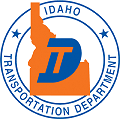About the Idaho Transportation Department
The Idaho Transportation Department is a government organization responsible for maintaining the state’s transportation infrastructure. Its five branches include aeronautics, highways, motor vehicles (DMV), human resources, and administration. Located in Boise, Idaho, the department works to provide the state’s 1.6 million residents with safe, efficient mobility as well as economic opportunities through improved connectivity.
Objective
Providing top-tier services to residents is at the heart of the Idaho Transportation Department’s mission. To meet their goal, the department needs to have a consolidated view of its residents. But information that is spread across siloed databases prevents the department from accurately matching citizen records and, consequently, from providing the best experience possible for the residents of Idaho.
The agency has a legislative mandate to produce one record per DMV customer. In the past, they ran into situations in which they couldn’t identify repeat customers when they came in for different services. This was due, in part, to the many separate databases the department maintained. For instance, driver services had their own client database, vehicle services had their client database, and motor carrier services had their client database.
According to Randi Bristol-Hogue, DMV Transformation Program Manager, “Until we got to a position where we could bring that data together and identify where those clients were the same, we couldn’t really provide the level of service that we wanted to.”
To further complicate matters, the department’s mainframe data table structure is non-relational, so every record in the mainframe represents one transaction. This means that if a resident owns three vehicles, they will have three records even though they are the same person. In a DMV operation, there is a large diversity of datasets, including driver’s licenses, motor carrier registrations, domestic Idaho carrier records, and foreign carrier records for those who only pay for miles they drive through Idaho. This translates to a lot of information that needs to be tied together.
In 2010, help came in the form of a mandate by the state legislature. In an effort to consolidate duplicate records for individuals, the Transportation Department lobbied for the state of Idaho to put legislation in place that requires residents to provide unique identifying information (such as a Social Security number or driver’s license number) to the department. According to Bristol-Hogue, “The proposed legislation requires residents to give us enough information so that we can adequately match them if they already exist in our system somewhere.” With the mandate in place, the transportation department had what they needed to match customers to their records.
While the mandate was a boon for achieving their goal of having one record per DMV customer, it also created unique challenges for the department. The influx of data highlighted the need for more robust data management capabilities than their existing mainframe environment could provide. Any new system would need to provide long-term storage of the data for historical purposes, enable reporting, and have an ongoing process for deduplicating the data.
Solution
The Idaho Transportation Department wasn’t having success with their current solution, both in terms of its performance (the ability to meet deduplication and quality standards), as well as its operational demands. For instance, their old solution required frequent dataset updates that would take the system offline, causing issues across the department. With no other option in sight, they resigned to trying to make it work.
In 2016, they started conversations and explored what Experian Data Quality had to offer. Initially, the department was interested in solutions for address verification, as well as a solution that had matching capabilities. While these solutions take care of the performance issues the department was experiencing, they still needed to solve for the operational demands that limit their current solution. After a seeing a demo of Experian Pandora, the department felt they might have found their solution. “I think that’s when the light went on that maybe there is something better that’s worth the effort to make the switch,” says Bristol-Hogue.
Putting forward a case to implement the Experian solutions was straightforward for the department. According to Neil Snyder, DMV Software Architect, “When the possibilities of the Experian products came along, the justification was really an economic one. We could swap out the existing product with the Experian product—get more bang for the buck—and from a cost perspective remain neutral.”



